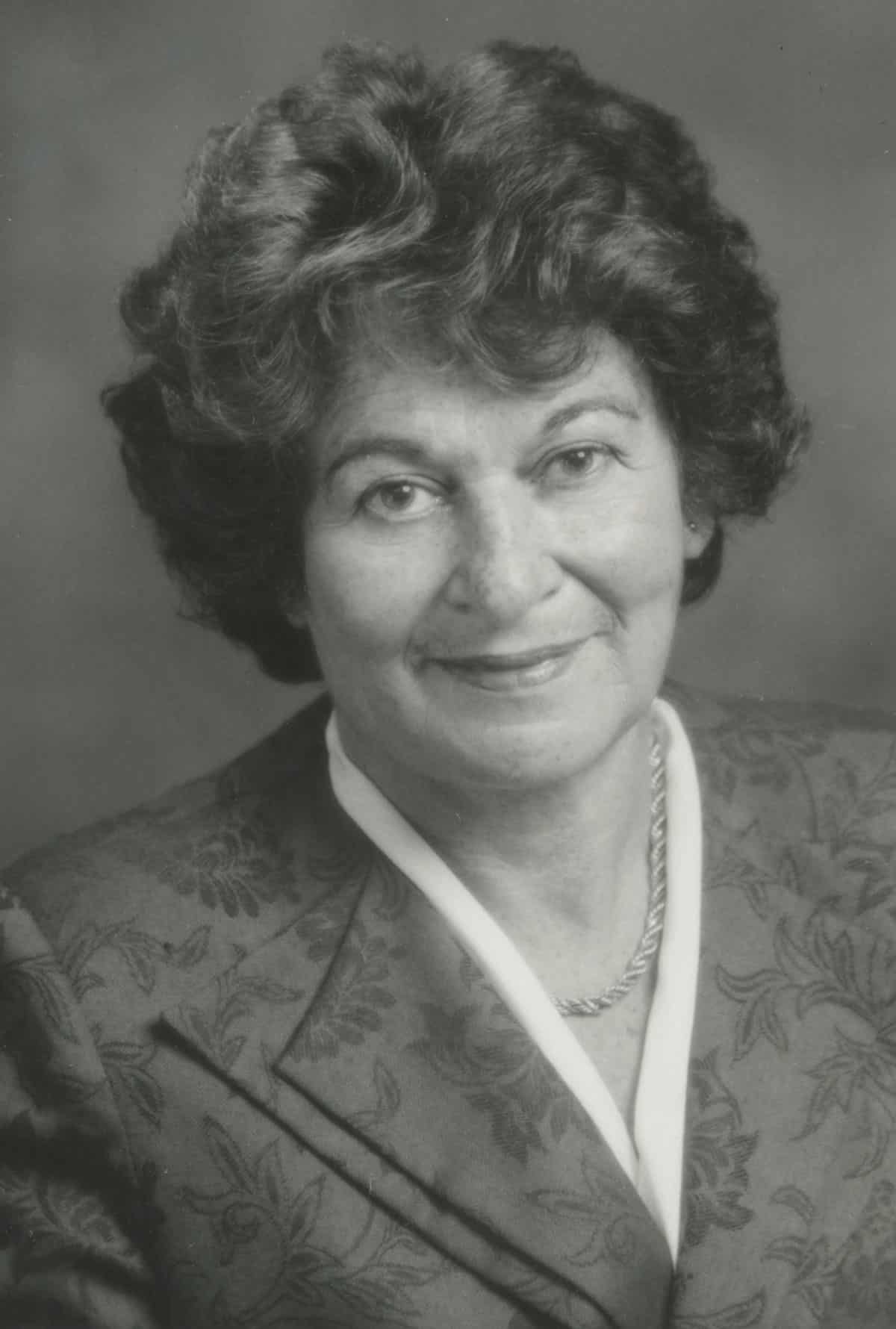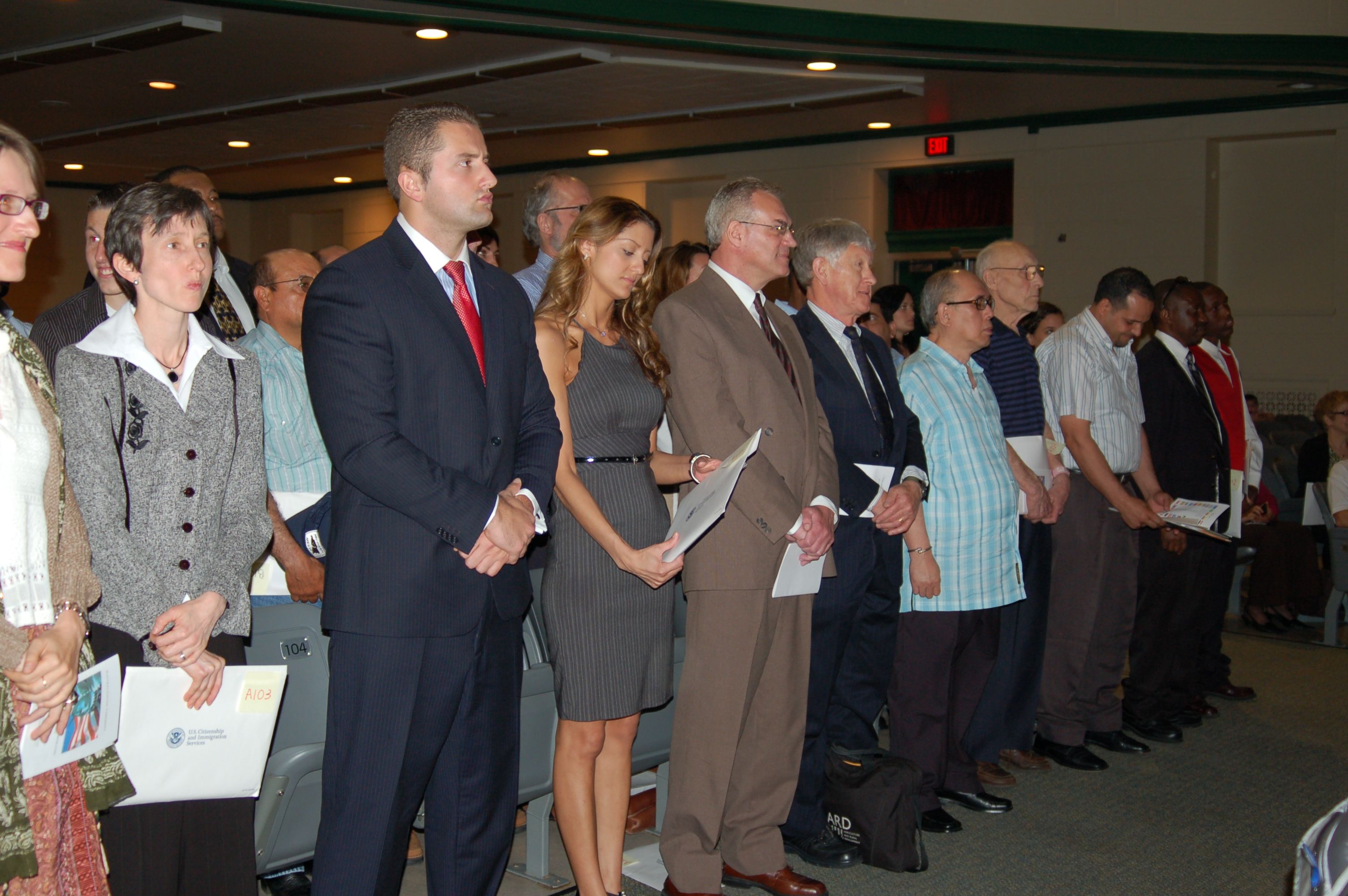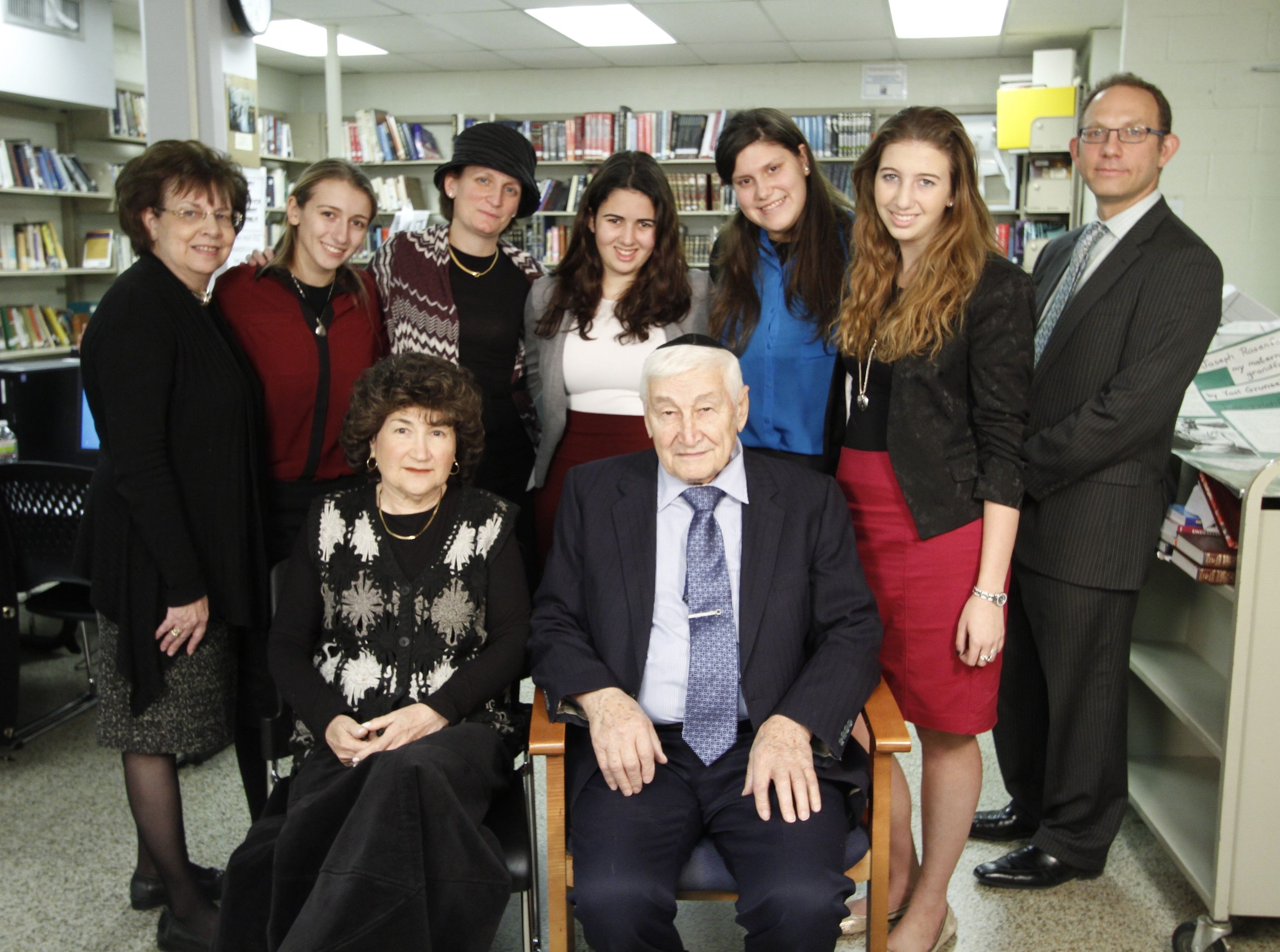Gerda Weissmann Klein: A Voice Of Resilience And Hope
Have you ever stopped to consider the incredible strength some people find even after facing the most difficult things imaginable? That's what we see when we look at the life of Gerda Weissmann Klein, a name that really stands for enduring courage. Her story, a powerful account of survival during the Holocaust, continues to touch hearts and minds across the world. It reminds us about the importance of hope, even when everything seems lost. So, too it's almost, her experiences offer a profound lesson in humanity's ability to overcome immense cruelty.
Gerda Weissmann Klein's journey is a vivid example of how the human spirit can persist through unimaginable suffering. Born in Poland, her teenage years were stolen by the horrors of World War II. Yet, she held onto a tiny spark of optimism, finding ways to endure forced labor, starvation, and the loss of nearly everyone she loved. Her powerful memoirs and speeches have helped countless people grasp the personal toll of historical events.
Learning about Gerda Weissmann Klein isn't just about understanding history; it's about connecting with a person who chose to live a life dedicated to peace and education. Her message is a simple yet profound one: remember the past, but always look to the future with kindness and understanding. It's a tale that really sticks with you, inspiring action and reflection, you know.
- French Montana Says Max B Might Be
- Joe Barry Net Worth Is He Really
- Is Tyler Langford Based On A Real
- Adria Wu Where Is Five Star Chef
- Fame Mark Belling Net Worth And Salary
Table of Contents
- Biography of Gerda Weissmann Klein
- Early Life and the Holocaust
- A Journey of Survival
- After Liberation: A New Beginning
- Gerda Weissmann Klein's Enduring Legacy
- The Power of Memory and Hope
- Frequently Asked Questions About Gerda Weissmann Klein
- Conclusion
Biography of Gerda Weissmann Klein
Gerda Weissmann Klein, a truly remarkable individual, dedicated her life to sharing her experiences as a Holocaust survivor. She became a celebrated author, speaker, and human rights advocate. Her story is one of profound loss, yet also one of incredible resilience and a commitment to ensuring that such atrocities are never forgotten. She received the Presidential Medal of Freedom, the highest civilian honor in the United States, in 2011, recognizing her tireless work for tolerance and understanding. Her purpose, you know, seemed manifold, encompassing remembrance, education, and fostering a kinder world.
Personal Details & Bio Data
| Full Name | Gerda Weissmann Klein |
| Born | June 8, 1924 |
| Birthplace | Bielsko, Poland |
| Died | April 3, 2022 |
| Nationality | Polish-American |
| Spouse | Kurt Klein |
| Known For | Holocaust survival, author of "All But My Life," human rights advocacy, recipient of Presidential Medal of Freedom |
| Notable Works | "All But My Life" (memoir), "One Survivor Remembers" (documentary) |
Early Life and the Holocaust
Gerda Weissmann grew up in Bielsko, a small town in Poland, enjoying a fairly normal childhood with her parents, Julius and Helene, and her older brother, Arthur. Their lives, like many others, were turned upside down when German forces invaded Poland in 1939. This invasion marked the beginning of a truly dark period for Jewish people across Europe. Gerda was just 15 years old when her family's freedom was taken away, and their world began to shrink around them.
The family was forced into a ghetto, a cramped and isolated area where Jewish people were made to live. Soon after, her brother, Arthur, was taken away. Gerda would never see him again. Then, in 1942, her parents were also taken. Gerda's father was sent to a labor camp, and her mother was sent to Auschwitz. This left young Gerda, a teenager, completely alone, facing an uncertain future. She held onto a small photo of her parents, a tiny reminder of the life she had lost. It was a very hard time, obviously.
- Butch Patrick Net Worth Celebrity Net Worth
- Harley West Bio Wikipedia Age Height Boyfriend
- Where Is Ross Caruso Going After Leaving
- Kenny Babyface Edmonds Finalizes Divorce With Nicole
- Tom Sandoval Parents Meet Anthony Sandoval And
Gerda was then sent to various forced labor camps. These were places of immense hardship, where people worked long hours with little food and faced constant danger. She endured brutal conditions, starvation, and the constant threat of death. She saw terrible things, but she clung to a promise her father had made to her: that she would never give up. This promise, you know, became a powerful driving force for her survival. She carried it with her, a silent strength.
A Journey of Survival
Over the next three years, Gerda was moved through several labor camps. She worked in textile factories, making uniforms for the German army. The conditions were dreadful, and many people around her simply perished from exhaustion or illness. She witnessed countless acts of cruelty, but also, sometimes, small acts of kindness from fellow prisoners that kept a flicker of hope alive. She formed bonds with other young women, and they tried to support each other through the daily struggle. This shared experience, in a way, helped them get through it.
As the war drew to a close in 1945, the German army, facing defeat, forced Gerda and about 4,000 other women on a brutal death march. They were made to walk over 350 miles through bitter winter conditions, with little food or water. Many died along the way, collapsing from cold, hunger, or sheer exhaustion. Gerda, barely clinging to life, weighed only 68 pounds when the march ended. It was a truly horrifying ordeal, something that is hard to even think about.
During this march, Gerda's strength was tested in every possible way. She walked through snow and ice, wearing wooden clogs, her body giving out, but her will to live somehow remaining. She recalled a moment when she found a small, frozen green apple, and sharing it with a friend felt like the greatest feast. These tiny moments of shared humanity, even in such dire circumstances, show the incredible spirit of people. It's almost unbelievable, really, what she went through.
After Liberation: A New Beginning
On May 7, 1945, Gerda and the few remaining women from the death march were found by American soldiers in Volary, Czechoslovakia. Among these soldiers was Lieutenant Kurt Klein, a German-born Jew who had fled to the United States before the war. He spoke German, and when he saw the emaciated survivors, he asked if anyone spoke English. Gerda, surprisingly, replied that she did. This moment marked the beginning of her new life and a truly special connection.
Kurt Klein became Gerda's rescuer and, eventually, her husband. Their meeting was a profound moment, a symbol of hope emerging from the depths of despair. He helped her recover, both physically and emotionally. They married in 1946 and moved to the United States, settling in Buffalo, New York. This new chapter was a chance for Gerda to build a life, something she never thought possible. It was a complete change, you know, from everything she had known.
Gerda and Kurt had three children and built a loving family. Despite the immense trauma she had endured, Gerda chose to live a life filled with purpose. She could have chosen to remain silent about her past, to try and forget the horrors. Instead, she decided to share her story, believing that remembrance was the best way to prevent future atrocities. Her commitment to this cause was, in some respects, truly remarkable. She just kept going, honestly.
Gerda Weissmann Klein's Enduring Legacy
Gerda Weissmann Klein became a powerful voice for Holocaust education and human rights. Her memoir, "All But My Life," published in 1957, offered a deeply personal and moving account of her survival. The book has been translated into many languages and is widely read in schools and universities. It gives people a direct look at the human cost of hatred and prejudice. Her writings, in a way, serve as a kind of communication log for future generations, preserving vital lessons.
In 1995, an Academy Award-winning documentary, "One Survivor Remembers," was made about her experiences. This film brought her story to an even wider audience, ensuring that her message of tolerance and the importance of memory reached millions. She traveled extensively, speaking to audiences of all ages, from schoolchildren to world leaders. Her talks were always heartfelt, emphasizing the value of every individual life and the dangers of indifference.
Gerda also co-founded the Gerda and Kurt Klein Foundation, an organization dedicated to promoting tolerance, human rights, and education. The foundation works to combat prejudice and promote understanding among people from different backgrounds. Her work has inspired countless individuals to stand up against injustice and to appreciate the fragile nature of peace. She left a truly lasting mark on the world, a very positive one.
Her impact goes beyond her public speaking and writing. She taught us that even after the darkest experiences, one can still find joy and dedicate their life to making the world better. She often spoke about the small acts of kindness that sustained her during the war, and how those moments showed her the true essence of humanity. This perspective, honestly, is something we can all learn from. She really showed us how to live.
The Power of Memory and Hope
Gerda Weissmann Klein's central message revolved around the power of memory and the importance of hope. She believed that remembering the past was not about dwelling on sadness, but about learning from history to build a better future. She often said that hatred is a disease, and the only cure is love and understanding. Her words carried immense weight because they came from someone who had seen the absolute worst of humanity, yet still chose to believe in its goodness.
She encouraged young people to recognize their own power to make a difference. She urged them to be "upstanders," not bystanders, in the face of injustice. Her personal story made this message incredibly relatable and impactful. She showed that even one person's voice, raised against prejudice, can create ripples of positive change. It's a very simple idea, but it's also incredibly strong.
Her life serves as a constant reminder that freedom is a precious gift, one that should never be taken for granted. She understood that peace is not just the absence of war, but the presence of justice and respect for all people. Gerda Weissmann Klein's legacy continues to inspire people around the globe to foster empathy, embrace diversity, and work towards a world where such horrors are truly a thing of the past. Her influence, you know, is still felt today.
As of recent times, her story remains just as relevant as ever, perhaps even more so. In a world that can sometimes feel divided, her message of unity and kindness offers a guiding light. She taught us that even the smallest act of human connection can have a profound effect. It's a powerful thought, really, and one that gives us something to hold onto.
Frequently Asked Questions About Gerda Weissmann Klein
What is Gerda Weissmann Klein famous for?
Gerda Weissmann Klein is most famous for surviving the Holocaust and then dedicating her life to sharing her experiences as an author, speaker, and human rights advocate. Her memoir, "All But My Life," and the documentary "One Survivor Remembers," which won an Academy Award, brought her story to a wide audience. She became a symbol of resilience and a voice for tolerance and peace, receiving the Presidential Medal of Freedom for her efforts. She really helped people understand history in a personal way.
What happened to Gerda Weissmann Klein?
Gerda Weissmann Klein endured horrific experiences during the Holocaust. She was separated from her family at a young age, lost her parents and brother, and was forced into various labor camps. She survived a brutal 350-mile death march at the end of the war, weighing very little. After liberation by American soldiers, she met and married Kurt Klein, one of her liberators. She then moved to the United States and spent her life educating others about the dangers of hatred and the importance of human dignity. She passed away in April 2022, but her message lives on.
What was Gerda Weissmann Klein's message?
Gerda Weissmann Klein's core message was about the power of hope, the importance of memory, and the need for tolerance and understanding. She urged people to learn from the past, to remember the victims of the Holocaust, and to prevent similar atrocities from happening again. She often emphasized that hatred is a destructive force and that love, kindness, and respect for all people are the only ways to build a better world. She taught us to be "upstanders" against injustice, which is a very powerful idea.
Conclusion
Gerda Weissmann Klein's life story is a testament to the enduring strength of the human spirit. From the unimaginable darkness of the Holocaust, she emerged not with bitterness, but with a profound commitment to hope and education. Her powerful words and unwavering dedication to sharing her experiences have left an indelible mark on the world. She reminds us that even after facing the most terrible things, we can choose to live a life of meaning and purpose. Her courage and compassion continue to inspire people to stand up for what is right and to build a more peaceful world. Her message, you know, is still very much alive today.
If you feel moved by Gerda's story, perhaps you might consider learning more about Holocaust education on our site, or even exploring how you can support organizations dedicated to promoting tolerance and human rights. You can also find out more about her life and work by visiting the United States Holocaust Memorial Museum website, which offers extensive resources. Her story is a vital part of history, and understanding it helps us all, you know, work towards a better future.
- Chris Heisser Bio Age Height Net Worth
- Executive V C Of Dallas Cowboys Charlotte
- Tiffany Lau Bio Age Wiki Facts And
- Chelsea Gibb Biography Age Height Husband Net
- Ciara Ethnicity Nationality Race Family Body Measurements

Portrait of Gerda Weismann Klein - Jewish Buffalo History Center

Pictures of Gerda Weissmann Klein

Pictures of Gerda Weissmann Klein